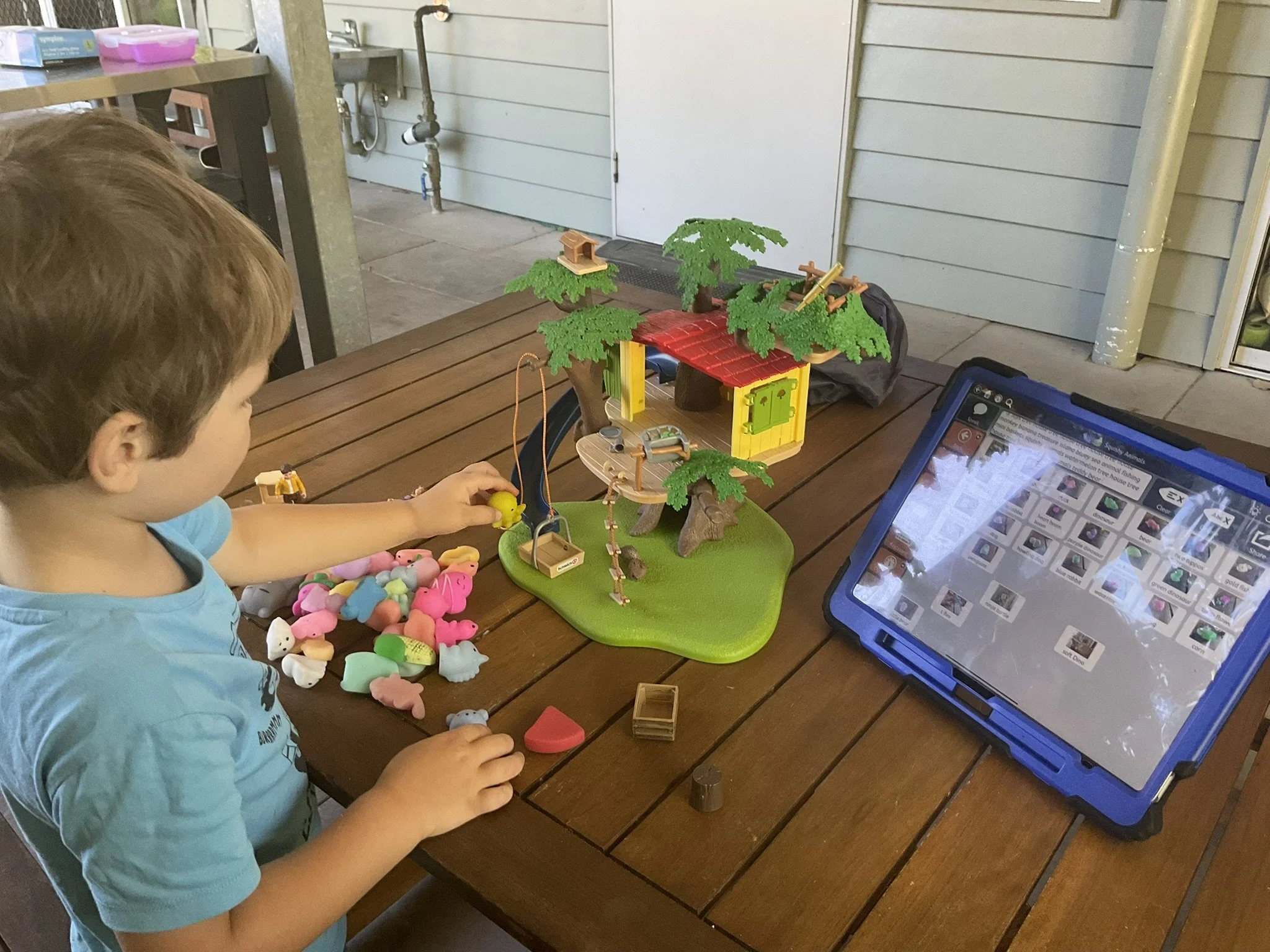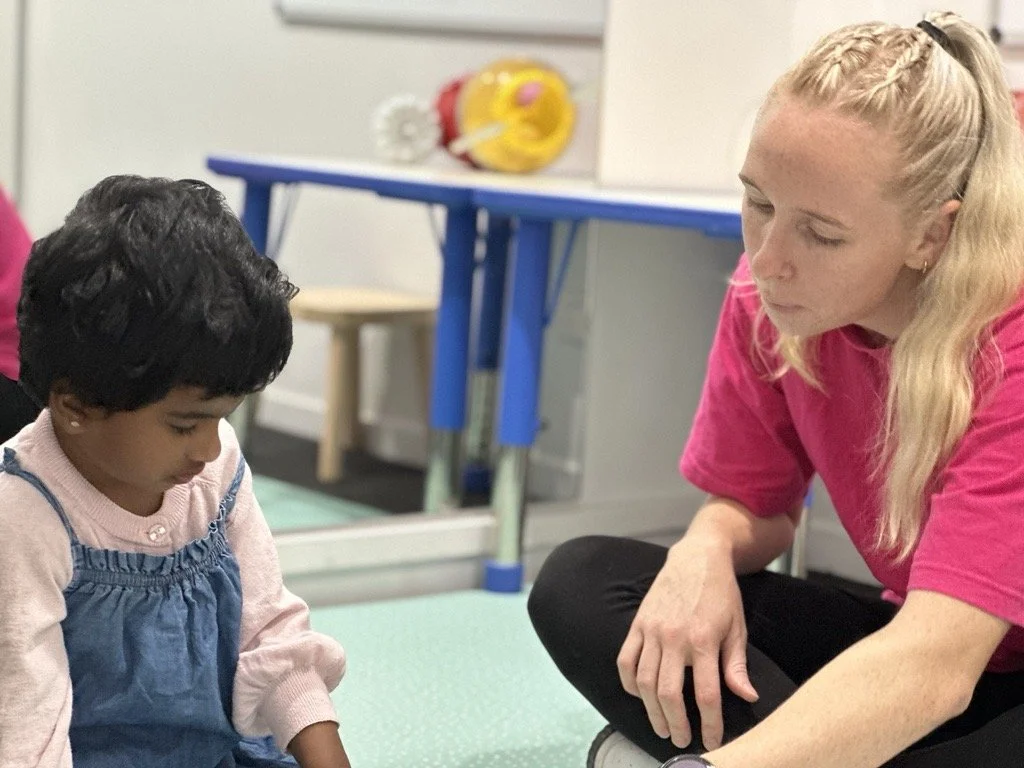How to Support Early Communication Through Play
Written by Emilie Adams, Speech Pathologist.
Play is a child’s most natural way of learning — it’s their “occupation.” Through play, children explore, connect, and build the foundations for communication. You can support this by joining in, following their lead, and talking about what interests them. Simple actions like taking turns, imitating sounds, and modelling short phrases help build language in a fun, meaningful way. When play is enjoyable and pressure-free, children are more motivated to communicate and learn.
Play Activities That Promote Communication
Certain types of play can be especially powerful in promoting communication development.
Pretend play: Pretend play encourages imagination and helps children expand their vocabulary and sentence skills as they act out different roles or scenarios.
Bubbles and songs: Simple activities like blowing bubbles or singing songs support attention, turn-taking, and the natural rhythm of speech.
Turn-taking games: Games that involve taking turns help children learn important social and pragmatic skills, such as waiting, sharing, and responding to others.
Storytelling and reading aloud: Storytelling and reading aloud are also wonderful ways to build comprehension, introduce new words, and spark conversations that strengthen language and connection.
Embedding Communication in Class
Embedding communication strategies into everyday classroom routines can make a big difference for children’s learning and confidence. Group activities are a great way to encourage interaction, helping students practise turn-taking, sharing ideas, and listening to others. Encouraging children to describe their actions, thoughts, and ideas throughout the day supports expressive language and builds confidence in using words for real purposes. Speech and language goals can also be naturally integrated into regular classroom routines — during transitions, story time, or play — so that communication growth happens in meaningful, engaging contexts.
Our Approach
At Lifespan Therapies, our sessions are structured yet flexible, allowing children to learn through play while working towards their individual goals. We provide practical strategies for both home and classroom settings to ensure consistency and support across environments. Our focus is on measurable progress in functional communication — helping each child use their skills confidently in real-life situations.
Do you want to know more about how you can support your child’s language through play? Book a speech session at Lifespan Therapies Brendale.



